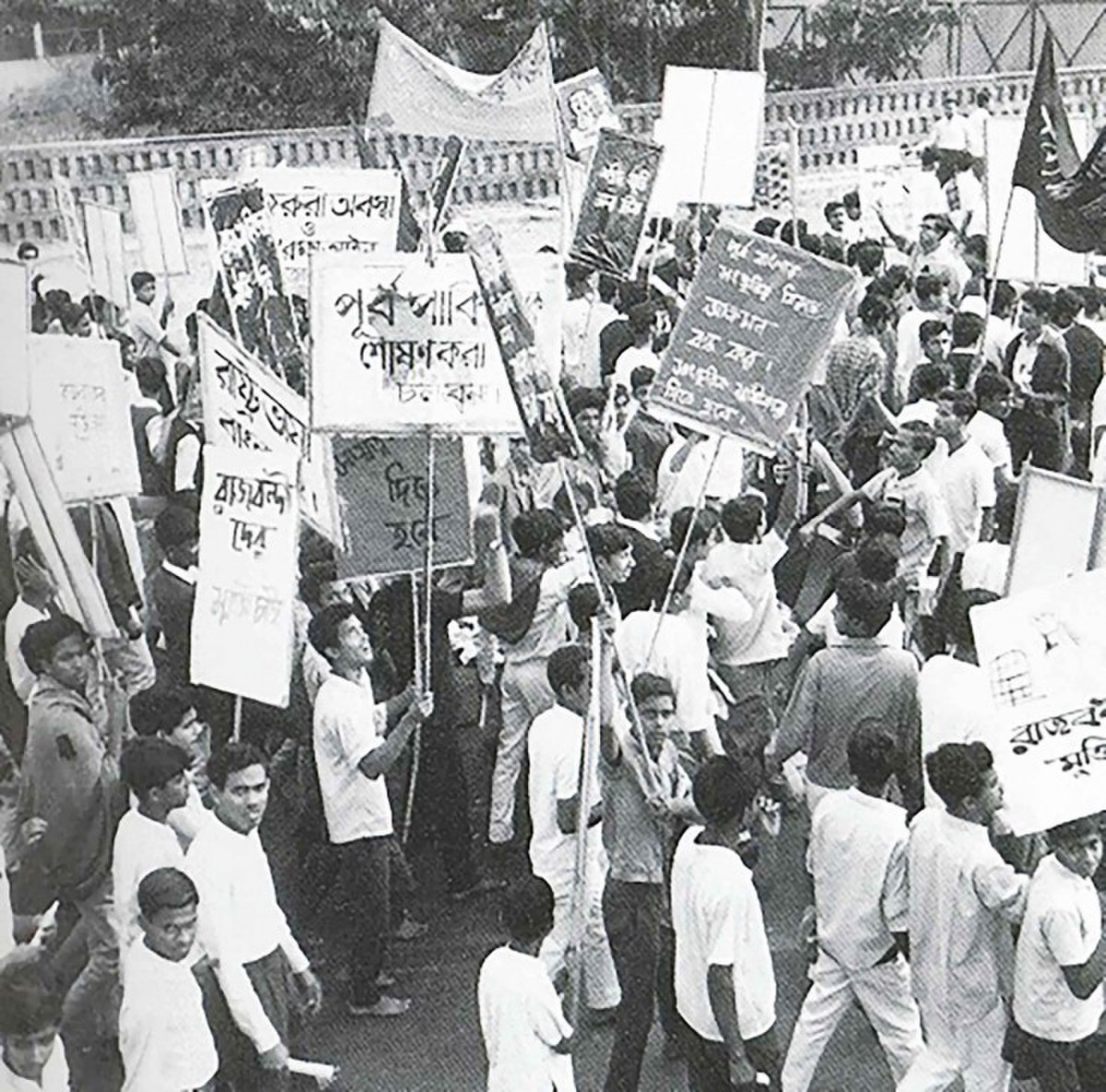
1969 East Pakistan Mass Uprising
BangladeshThe 1969 East Pakistan uprising was a significant democratic movement against the military rule of President Muhammad Ayub Khan. Driven by student-led demonstrations and supported by political parties like the Awami League and the National Awami Party, the uprising demanded political reforms and protested the Agartala Conspiracy Case and the imprisonment of Bengali nationalist leaders, including Sheikh Mujibur Rahman.[6] The movement, gaining momentum from the Six-Point Movement of 1966, escalated in early 1969, featuring widespread demonstrations and occasional conflicts with government forces. This public pressure culminated in President Ayub Khan's resignation and led to the withdrawal of the Agartala Conspiracy Case, resulting in the acquittal of Sheikh Mujibur Rahman and others.
In response to the unrest, President Yahya Khan, who succeeded Ayub Khan, announced plans for national elections in October 1970. He declared that the newly elected assembly would draft Pakistan's constitution and announced the division of West Pakistan into separate provinces. On 31 March 1970, he introduced the Legal Framework Order (LFO), calling for direct elections for a unicameral legislature.[7] This move was partly to address fears in the West about East Pakistan's demands for extensive provincial autonomy. The LFO aimed to ensure the future constitution would maintain Pakistan's territorial integrity and Islamic ideology.
The 1954-formed integrated province of West Pakistan was abolished, reverting to its original four provinces: Punjab, Sindh, Balochistan, and the North-West Frontier Province. Representation in the National Assembly was based on population, giving East Pakistan, with its larger population, a majority of the seats. Despite warnings of Sheikh Mujib's intentions to disregard the LFO and India's growing interference in East Pakistan, Yahya Khan underestimated the political dynamics, especially the support for the Awami League in East Pakistan.[7]
The general elections held on 7 December 1970 were Pakistan's first since independence and the last before Bangladesh's independence. The elections were for 300 general constituencies, with 162 in East Pakistan and 138 in West Pakistan, plus 13 additional seats reserved for women.[8] This election was a pivotal moment in the political landscape of Pakistan and the eventual formation of Bangladesh.
